Definition
Herpangina, mild viral infection caused by several enteroviruses, most of which are in the subgroup Coxsackie A, seen most commonly in young children. The most distinctive symptom is a rash on the mucous membranes inside the mouth. The lesions in the mouth are round macules (nonraised spots) about 2 mm (0.1 inch) in diameter, occurring predominantly on the soft palate and tonsils.
Herpangina usually starts abruptly with fever and sore throat, followed in some cases by loss of appetite, abdominal pain, vomiting, and other nonspecific symptoms; it is often confused with strep throat (pharyngitis), but, unlike strep throat, it does not respond to treatment with penicillin or other antibiotics.
The viruses that cause herpangina are worldwide in distribution and occur largely in the summer months; in the tropics, herpangina may be more evenly distributed throughout the year. The viruses that cause herpangina are transmitted from person to person, especially under conditions of crowding and imperfect hygiene. The infection is self-limited, resolving within one week and requiring no treatment.
Herpangina pathophysiology
The mode of transmission of enteroviruses is usually via fecal–oral transmission. However, enteroviruses can also be spread through contact with virus-contaminated oral secretions, vesicular fluid, contaminated surfaces or fomites, and viral respiratory droplets. Following ingestion of the enterovirus, viral replication occurs in the lymphoid tissues of the oropharyngeal cavity and the small bowel (Peyer’s patches). Dissemination of enteroviruses to the reticuloendothelial system and other parts of the body such as the skin and mucous membranes can occur, and this coincides with the onset of the clinical features.
Risk factors
- Contact with infected person
- Exposure to diaper changes or toilet training may increase risk (parents/teachers/daycare employees).
Causes of Herpangina
Herpangina is caused by a virus. The most common viruses that cause it are:
- Coxsackie viruses A and B
- Enterovirus 71
- Echovirus
Symptoms of Herpangina
Symptoms may include:
- Fever
- Headache
- Loss of appetite
- Sore throat, or painful swallowing
- Ulcers in the mouth and throat, and similar sores on the feet, hands, and buttocks
The ulcers most often have a white to whitish-gray base and a red border. They may be very painful. In most cases, there are only a few sores.
Symptoms of Herpangina
Complications
Herpangina cannot be treated or cured, but medicines can help ease symptoms and possibly speed up how long they are present. In most cases, the virus and symptoms will disappear on their own within a week to 10 days. Rarely, serious complications can occur. Contact your doctor right away if you have:
A fever that is over 103°F (39°C) or that doesn’t go away
Mouth sores or a sore throat that lasts for more than five days
Symptoms of dehydration, such as
- Dry mouth
- Lack of tears
- Fatigue
- Decreased urine output
- Dark urine
- Sunken eyes
The most common complication of herpangina is dehydration. Proper care and attention to regular hydration can help prevent this.
Diagnosis and test
The good news is that herpangina is not normally difficult to diagnose. Your doctor will start by reviewing your medical history and performing a physical examination. They will ask you questions about your symptoms and your current illness.
Laboratory tests are not usually necessary but the virus can be detected by taking cultures from the nose, stool, urine, blood, or cerebral spinal fluid. Without laboratory testing, herpangina can occasionally be mistaken for another illness such as:
- Hand-foot-and-mouth disease
- Herpes simplex
- Infectious mononucleosis
- Viral or bacterial pharyngitis
- Aphthous stomatitis – mouth ulcers that are not contagious and noncancerous
- Early symptomatic HIV infections
Treatment and medications
The infection causing herpangina will usually go away without any particular treatment. Antibiotics are not needed, because the condition is caused by a virus. However, there are treatments available to relieve the symptoms caused by the infection.
The most common treatments for the symptoms of herpangina are:
Ibuprofen: Used to ease pain and lessen fever.
Acetaminophen/paracetamol: Used to ease pain and lessen fever.
Anaesthetics: Numbing throat lozenges, mouthwashes, or teething gels may be helpful to reduce the pain caused by herpangina.
Fluids: To avoid dehydration, it is important to take in plenty of fluids during infection and recovery. Water and cold milk are typically recommended as they are easy to swallow and can have a soothing effect. Citrus and hot drinks should be avoided because they can be painful to swallow.
Aspirin should be avoided as a treatment method, particularly for children and teenagers, who should avoid aspirin completely unless asked to take it by a doctor.
Prevention of Herpangina
To prevent the spread of infection, wash your hands and your child’s hands often. Be sure to do so:
- After wiping the child’s nose
- Before preparing food
- After changing a diaper
- After using the toilet
There is no vaccine against Coxsackie virus.
 Diseases Treatments Dictionary This is complete solution to read all diseases treatments Which covers Prevention, Causes, Symptoms, Medical Terms, Drugs, Prescription, Natural Remedies with cures and Treatments. Most of the common diseases were listed in names, split with categories.
Diseases Treatments Dictionary This is complete solution to read all diseases treatments Which covers Prevention, Causes, Symptoms, Medical Terms, Drugs, Prescription, Natural Remedies with cures and Treatments. Most of the common diseases were listed in names, split with categories.

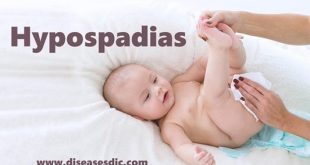

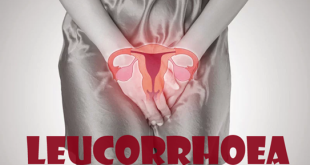
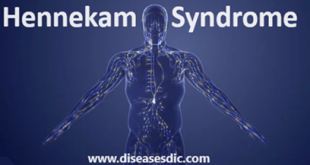
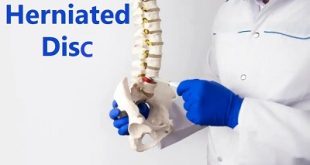
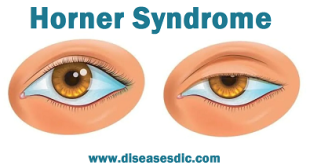

Good, write up on herpangina. I agree that there is no vaccine for this; hence being extra hygienic will help eliminate the virus as early as possible. I want to add a point that this occurs for school going children also, especially the kindergartens. Hence, they should be educated by the parents about keeping themselves hygienic, especially while using school toilets.